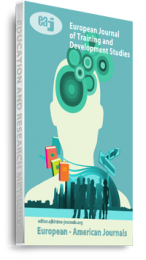The study was carried out to determine the effects of peer tutoring on students’ achievement in Biology. The study used two modes of peer tutoring such as Class Wide Peer Tutoring (CWPT) and Reciprocal Peer Tutoring (RPT). To guide the study, three research questions were posed and three hypotheses were formulated and tested at 5% probability level. Quasi-experimental design was adopted for the study. Specifically, pretest- posttest non-equivalent control groups design was used for the study. The study was carried out in Onitsha Education Zone of Anambra State. Six out of the 32 co-educational schools in Onitsha education zone were used for the study. A total sample of one hundred and eighty (180) SSII Biology students of 2018/2019 was used for the study. The sample was drawn using stratified random sampling and simple random sampling techniques. Two instruments, a Biology Achievement Test (BAT) and a Biology Interest Scale (BIS) were used for data collection. The BAT consist of 30 multiple choice test items which were drawn from the content covered which include; adaptation, conservation of natural resources, pollution and its control and association. The instrument was trial tested on 30 students, the reliability of BAT was determined using Kuder-Richardson (K-R20) and yielded an internal consistency index of 0.83. Mean and Standard deviation were used in answering the research questions while Analysis of Covariance (ANCOVA) was used in testing the null hypotheses. The findings among other things show that there was a significance different in the mean achievement score of students taught Biology using CWPT than those taught with RPT.
Keywords: Biology, Students’ Achievement, peer tutoring strategy

